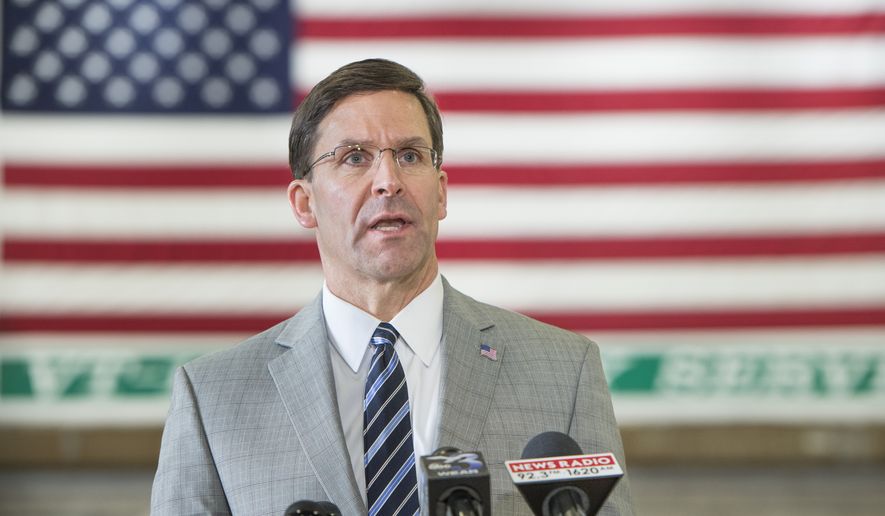The U.S. needs to do more to account for Chinese students studying at the nation’s top universities and research institutions to make sure American technology remains within the nation’s borders, Secretary of Defense Mark Esper told an audience Friday morning at the Center for Strategic and International Studies.
“We need to be more conscious of who is in our schools and universities and what they’re doing - what they’re doing and what their purpose is,” Mr. Esper said. “For defense programs, we need to know who is working on our initiatives — whether it’s basic or advanced research.”
Mr. Esper cited the Defense Department’s national defense strategy that identifies both China and Russia as America’s leading adversaries in an era of great power competitions, but noted China’s technological threats bear greater scrutiny.
China is “trying to use emerging technologies to alter the landscape of power and reshape the world in their favor — and often at the expense of others,” Mr. Esper said. “The Chinese government is using its diplomatic, military and economic power to advance its aims in ways that are heavy handed, often threatening and usually contrary to international rules and norms.”
He said China is “determined” to obtain and exploit American intellectual property at any cost. Since 2018, the Department of Justice have filed federal charges against several Chinese nationals and entities in at least seven economic espionage cases — including at least one involving a conspiracy to steal trade secrets from major U.S. semiconductor makers, Mr. Esper said.
“In recent years, the Department of Defense and its industry partners have been under continuing cyber siege by Chinese hackers,” he said. “American universities and colleges have become a prime target of Chinese espionage and exploitation efforts.”
In July, a UCLA electrical engineering professor was accused for his role in a conspiracy to send semiconductor chips used with military applications to China. While a researcher at the University of Kansas was charged with conducting federally funded research while concealing his work for a Chinese university.
“He was part of a larger Chinese effort to recruit researchers and professors at American colleges and universities,” Mr. Esper said. “Despite widespread outrage, Beijing shows few if any signs of changing its ways.”
A teenager who enlists in the Army goes through an extensive background check before they are allowed to wear a uniform and carry a rifle, Mr. Esper said.
“Why shouldn’t we vet those who work on our next generation weapons systems?” he asked.
• Mike Glenn can be reached at mglenn@washingtontimes.com.




Please read our comment policy before commenting.